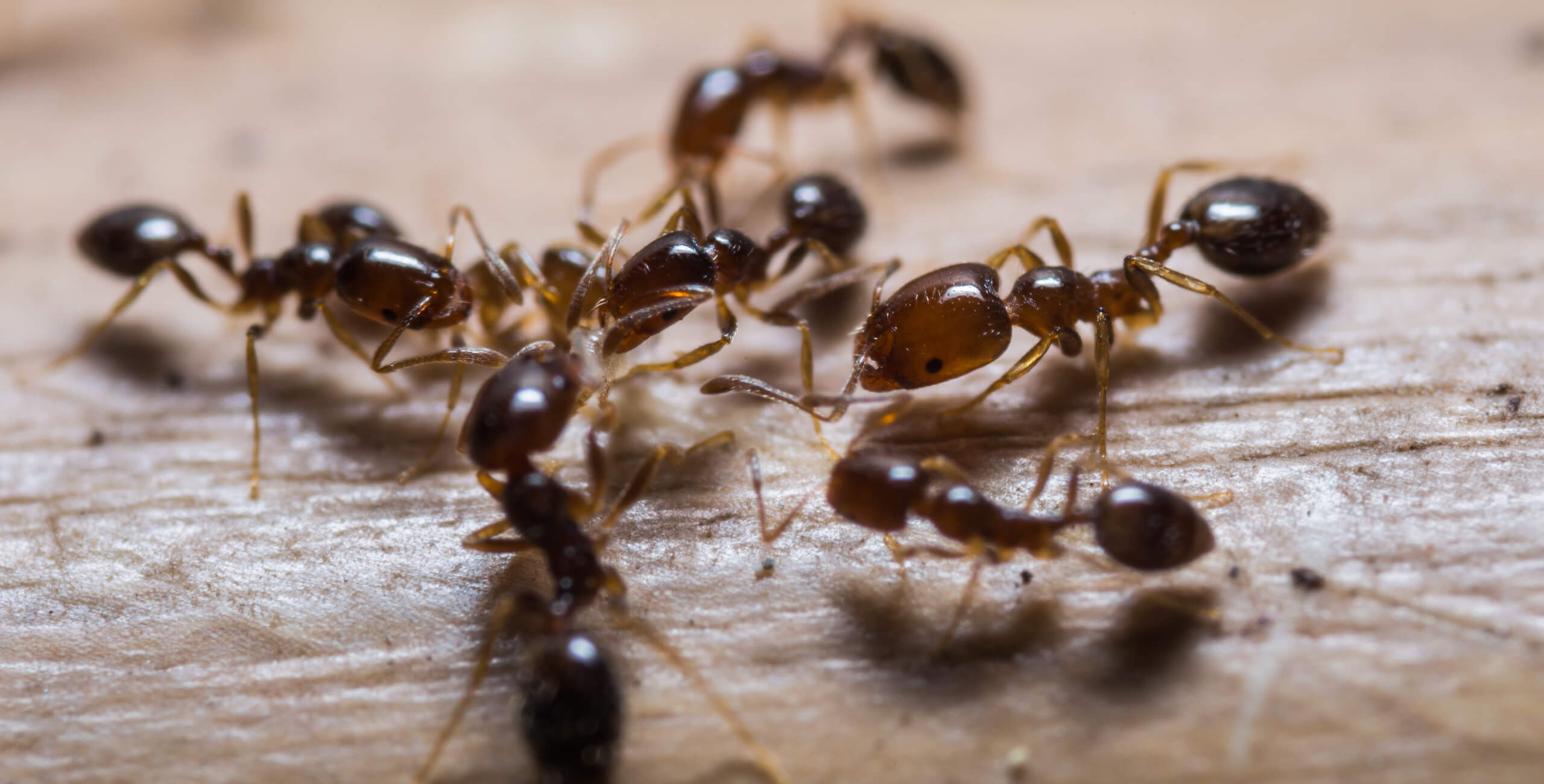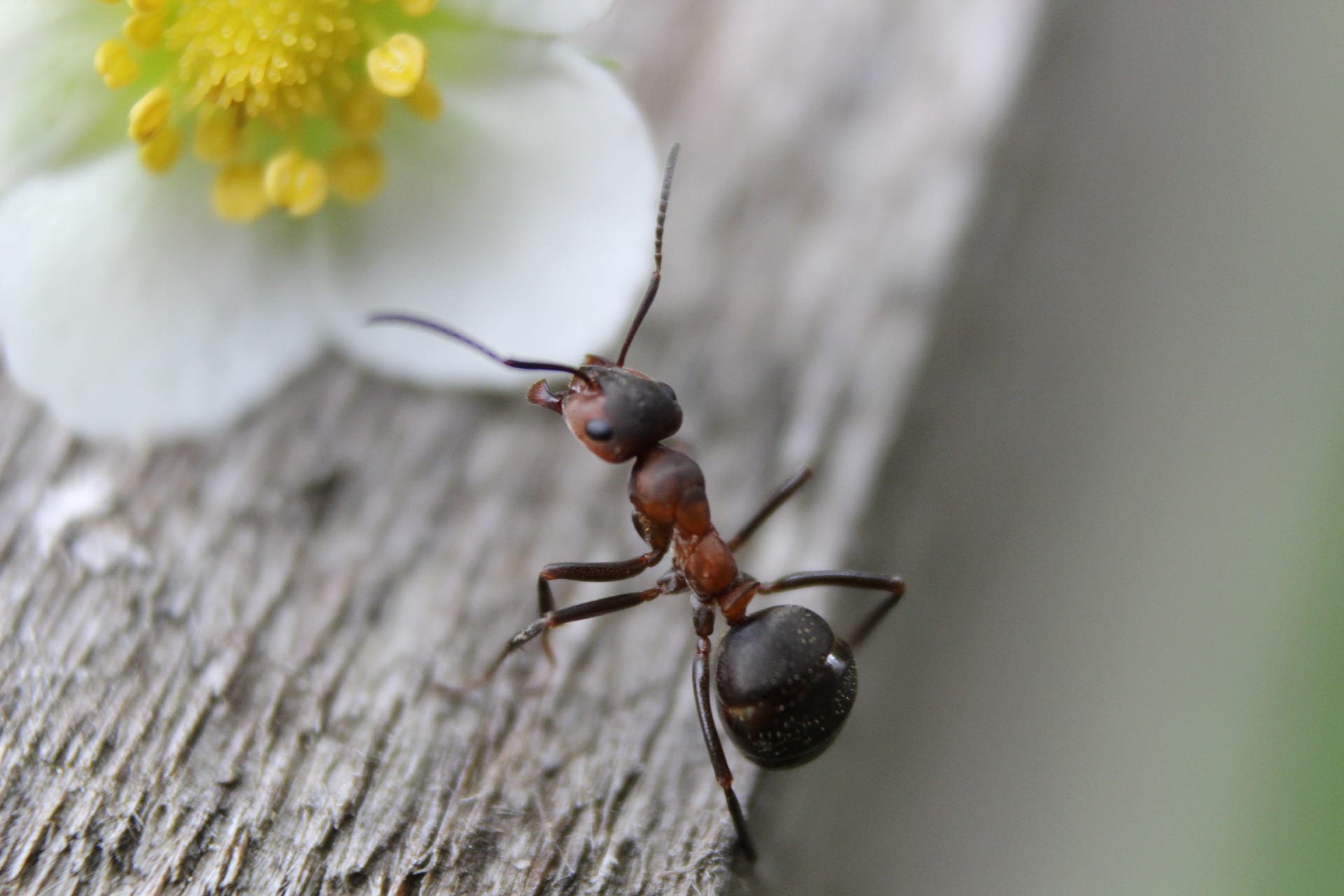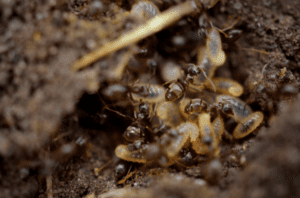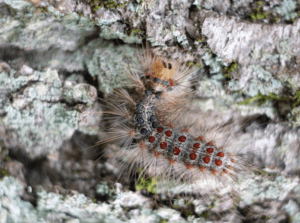
Discover effective ant control tips tailored for Bergen County, NJ, where ants are a common nuisance. For reliable Bergen County ant control, understanding key facts about ants—like their attraction to moisture and food sources—is essential for effective management. Learn how to safeguard your home with expert strategies to keep these persistent pests at bay.
Understanding Bergen County Ant Control
Bergen County, New Jersey is home to several common ant species, including the pavement ant, odorous house ant, carpenter ant, and the Argentine ant.
Pavement ants are small, brown to black ants that typically nest under sidewalks, driveways, and building foundations. They forage in large numbers and are often seen in kitchens in search of food. Odorous house ants are dark brown or black and emit a rotten coconut smell when crushed. They prefer nesting in moist environments and can be found in wall voids or beneath floors. Argentine ants are light to dark brown and form massive colonies with multiple queens, which makes them difficult to control. They often nest in moist areas such as under logs or mulch.
Carpenter ants are among the largest ants in Bergen County, and they nest in damp, decaying wood. Unlike termites, they do not eat wood but hollow it out to build their nests, posing a significant threat to wooden structures. Learning to identify carpenter ants vs black ants is crucial in order to properly devise an elimination plan. All Bergen County ant species can invade homes and businesses in search of food and water, posing health risks by contaminating food supplies. Carpenter ants, in particular, can cause structural damage, leading to costly repairs.
If you're wondering how to control ants in Bergen County, understanding these species' behaviors and preferences is key to implementing effective ant management strategies tailored to your specific needs.
Identifying Signs of Ant Infestation in Bergen County
Recognizing the signs of ant infestations in a home or business is crucial for early detection and effective management, and is the first step in learning how to prevent ants. One of the most common signs is the presence of ant trails, which are pathways ants create while foraging for food. These trails can be seen along walls, floors, and countertops. Following these trails often leads to the nest or entry point.
Another indicator is the discovery of nests, which vary depending on the ant species. For example, carpenter ants nest in wood and may leave behind small piles of sawdust near their nesting sites, indicating they are hollowing out wood. Pavement ants often build small dirt mounds near cracks in concrete, while odorous house ants prefer moist environments like wall voids or beneath floors.
Discarded wings are a telltale sign of an ant infestation, particularly during the swarming season when reproductive ants leave the nest to start new colonies. These wings can often be found near windowsills or entry points. Other signs include rustling noises within walls, especially for carpenter ants, and the presence of live ants in areas with food or moisture.
Preventive Measures for Ant Control
Preventing ant infestations involves proactive measures to create an environment less attractive to ants. Sealing entry points is a primary step. Inspect and caulk cracks and gaps in windows, doors, and foundations to block ants' access to the interior. Ensuring that weather stripping and door sweeps are in good condition also helps prevent entry.
Removing food sources is crucial. Store food in airtight containers, keep pet food sealed, and clean up spills immediately. Regularly empty trash bins and keep them tightly closed. Cleaning kitchen surfaces and floors to remove crumbs and residues eliminates potential food foraging opportunities for ants. Maintaining cleanliness throughout the home or business further deters ants. Regularly vacuum and mop floors, paying attention to corners and under appliances. Wipe down counters and tables daily, ensuring no food remnants are left behind. Promptly fix any leaky faucets or pipes, as ants are also attracted to water sources.
Outdoor maintenance plays a role as well. Trim vegetation away from buildings and avoid stacking firewood or other debris near the foundation, as these can serve as nesting sites.
Do It Yourself Ant Control Methods
Do it yourself ant control techniques offer homeowners cost-effective solutions. One popular method is making DIY bait traps. Mix boric acid with sugar and water to create a bait that attracts ants. Place small containers of this mixture near ant trails and entry points. The ants are drawn to the sugar, consume the bait, and carry it back to the colony, where the boric acid eventually eliminates them. Ensure the bait is kept out of reach of children and pets. DIY bait traps are not recommended for commercial properties; DIY methods do not supply the appropriate level of pest control needed in commercial venues, not to mention they may present a danger to customers making them a liability. Implementing physical barriers is another effective strategy. Draw lines with chalk or sprinkle talcum powder or cinnamon at entry points, as ants are hesitant to cross these substances. Diatomaceous earth can also be used to create a barrier.
Natural Ant Control Solutions
When considering how to control ants in the house naturally, using eco-friendly solutions can minimize environmental impact. One such solution is diatomaceous earth, a fine powder made from fossilized algae. When ants come into contact with it, the powder dehydrates and kills them. It's safe for humans and pets, making it an ideal option for use around the home. As previously mentioned, boric acid is another natural remedy. This method targets the ants directly, reducing the need for widespread chemical use.
Botanical insecticides, derived from plants, offer a third natural solution. Essential oils like peppermint, tea tree, and citrus oils repel ants due to their strong scents. Spraying these oils along ant trails and entry points can deter ants from entering your home. Neem oil, another botanical insecticide, can be used to disrupt the reproductive cycle of ants, reducing their population over time.

Professional Pest Control in Bergen County
You may find yourself wondering, does pest control get rid of ants? The answer is yes, professional pest control services are highly effective in addressing ant infestations. These services typically begin with a thorough inspection to identify the species of ant and locate their nests and entry points. Understanding the specific ant species is crucial as it determines the treatment strategy.
Professional ant pest control often involves a combination of methods, including baiting, barrier treatments, and direct nest treatments. Baits are strategically placed to attract foraging ants, which then carry the poison back to the colony, effectively targeting the entire population. Barrier treatments create a protective zone around the property, preventing ants from entering. Direct nest treatments involve applying insecticides directly to the nest, ensuring the elimination of the colony.
Home and business owners can expect pest control technicians to provide detailed plans, including preventive measures to avoid future infestations. Technicians should use eco-friendly and safe products, ensuring minimal impact on the environment and the health of residents and pets. Regular follow-up visits may be scheduled to monitor the situation and apply additional treatments if necessary.
In Bergen County, effective ant control is essential for both residential and commercial properties. By implementing proven tips like eliminating food sources and sealing entry points, you can significantly reduce ant infestations. Our team specializes in Bergen County ant control, offering tailored solutions to meet the unique needs of our local community. For more persistent problems, consider Twin-Boro’s professional residential pest control or commercial pest control services. Contact us today to discuss customized solutions and ensure your property remains protected from unwanted ant invasions.






